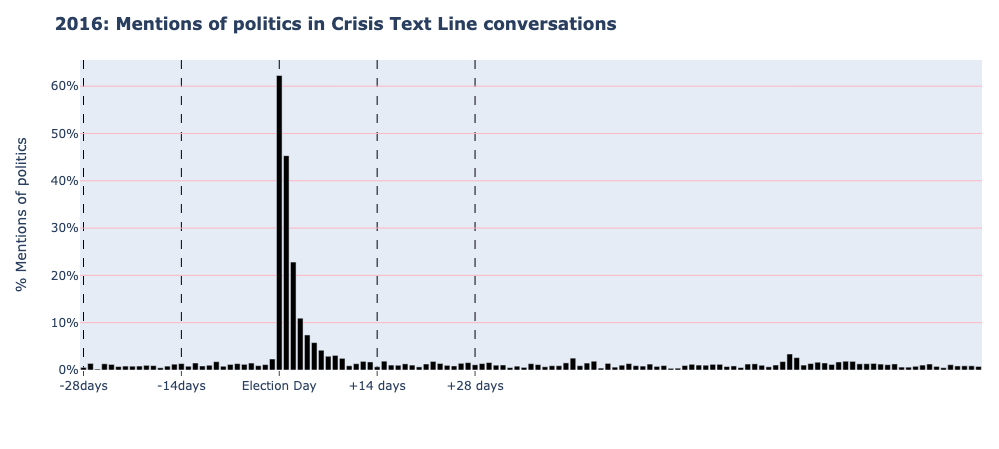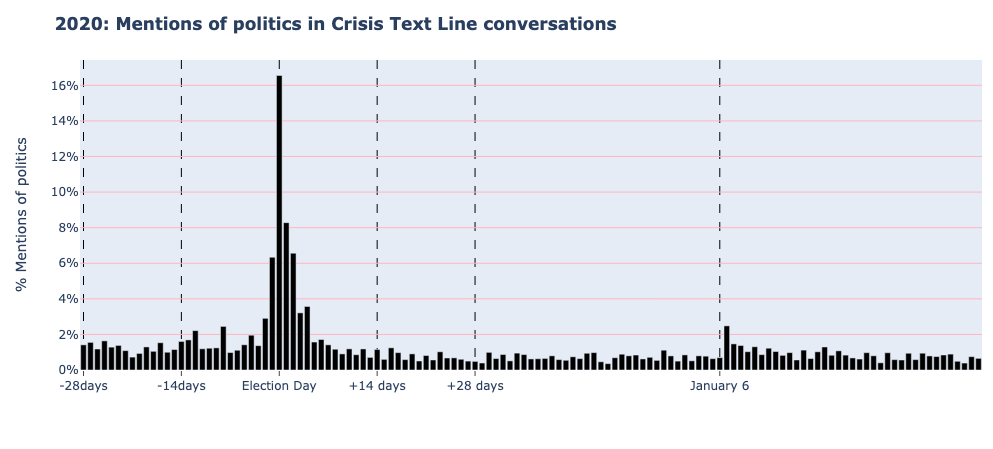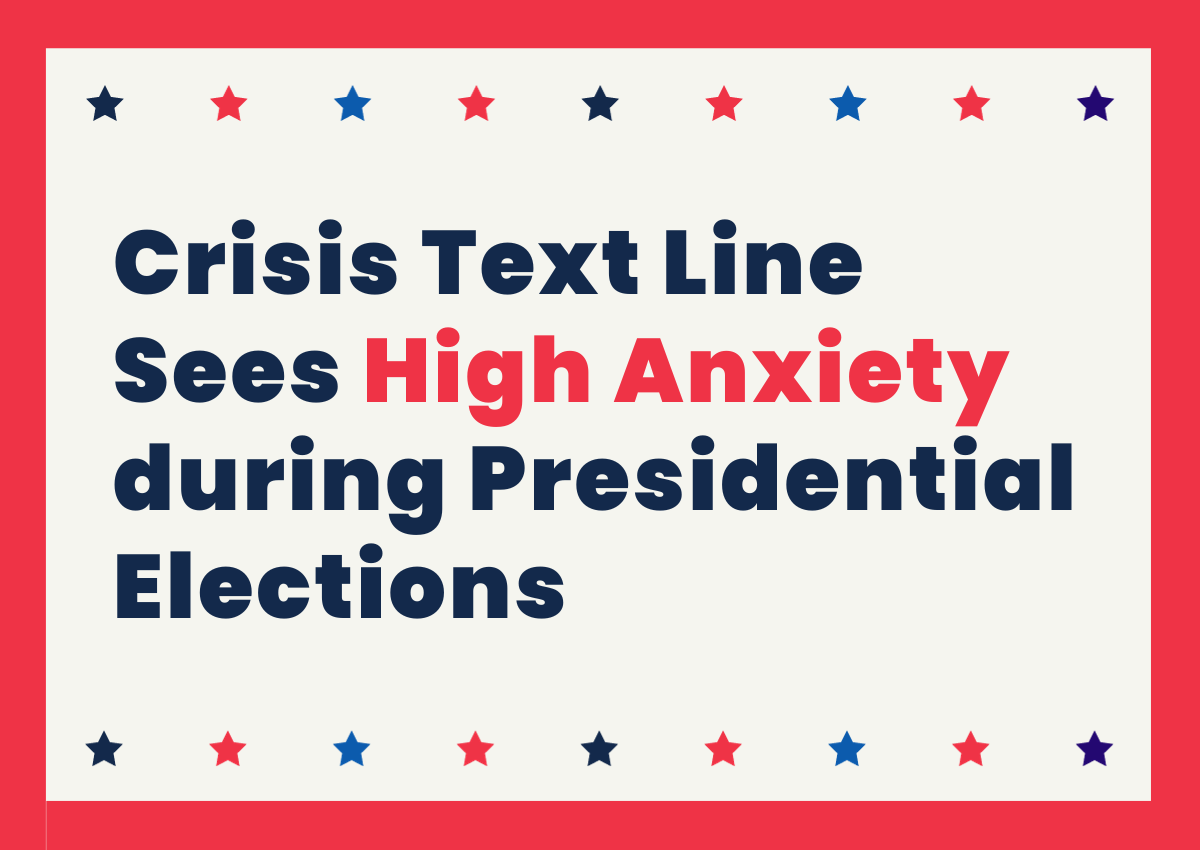Crisis Text Line Sees High Anxiety During Presidential Elections
By: Lili Torok, Principal Research Scientist
This is Part 1 of our series on election-related insights based on our conversations with people in crisis.
We are now officially in an election year, so we took a moment to reflect on the past two election seasons.
Here is what you need to know.
1. The 2016 and 2020 presidential election seasons were both busy times at Crisis Text Line.
In 2016 (in blue), we experienced a sudden spike on Election Night when many reached for their phones to text us all at once. In the fall of 2020 (in red), our volume started to surge ahead of the elections, and we kept experiencing spikes through the end of the year. There are two important caveats here: 1. In the fall of 2020, a new wave of COVID-19 was surging in the U.S. without a vaccine in public distribution; 2. We often see high volume and spikes in November and December, regardless of elections.
 2. When people are voting in a presidential election, it’s a topic of Crisis Text Line conversations.
2. When people are voting in a presidential election, it’s a topic of Crisis Text Line conversations.
Normally, less than 1 in 100 texters bring up the topic of politics; sometimes, current events are associated with small bumps, but none are as high as the spikes of presidential elections. In 2016, mentions of politics and elections went from 2% of conversations the day before the elections to 62% the day of the elections. In 2020, the ramp-up was much more gradual; mentions went from 3% to 6% in the days before, and finally to 17% on the day of the elections. As shown below, January 6, 2021 was also associated with a small, but noticeable bump in conversations about politics in our data.

 3. We saw anxiety peak during the 2016 elections, and on January 6, 2021 four years later.
3. We saw anxiety peak during the 2016 elections, and on January 6, 2021 four years later.
Baseline anxiety was also higher during the 2020 election season. Over 40% of texters discussed anxiety on Election Day 2020 and on January 6, 2021, while only 30% discussed anxiety on Election Day in 2016. This could be for a variety of reasons, including that 2020 was a generally anxious time for many.


4. Politics is often a source of stress, conflict, and isolation for texters.
When people talk about politics, they often mention it as a source of conflict between friends and loved ones, isolation in a community, disappointment in leaders, and as a source of being overwhelmed due to current events – based on a qualitative review of selected conversations. We are currently using Machine Learning (ML) to study election stress in our conversations, and the strategies that help texters cope with it. ML enables us to identify patterns in election stress at scale, in a way that previously would have only been possible if our analysts personally reviewed millions of conversations.
We will continue to share insights around elections and political anxiety for the next several months on this blog. For media requests, please reach out to Vanessa Showalter, Crisis Text Line’s Sr. Communications Director, at press@crisistextline.org.
Methodology note: We analyzed 727,098 de-identified conversations in 2016-2017, and 1,584,816 de-identified conversations in 2020-2021 We were able to estimate timing based on area codes, and conversations that were not pranks or tests. We used keywords to identify conversations referencing politics and elections, including words in the following list for 2016: ‘election’, ‘trump’, ‘hillary’, ‘clinton’, ‘democrat’, ‘republican’, ‘vote’, ‘elect’, ‘primaries’, ‘debate’; and the following list in 2020: ‘election’, ‘trump’, ‘biden’, ‘democrat’, ‘republican’, ‘vote’, ‘elect’,’primaries’, ‘debate’. The analysis on anxiety is based on issue tags that volunteer Crisis Counselors assign to conversations in a post-conversation survey. Please note that Crisis Text Line texters are not representative of the U.S. population. For more information on methodology, please email Lili Torok, Crisis Text Line’s Principal Research Scientist, at ltorok@crisistextline.org


